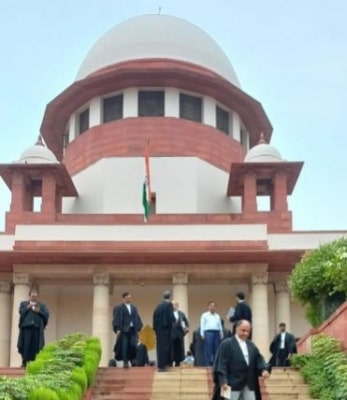New Delhi (IANS) The Supreme Court on Wednesday adjourned until November 24 the scrutiny of the decision-making process behind the 2016 demonetisation policy as Centre failed to affidavit, saying “it is very embarrassing”.
On October 11, the Supreme Court asked the Centre and RBI to file comprehensive affidavits on the 2016 demonetisation decision and also keep the files ready in connection with Centre’s letter to the RBI, the decision of the RBI Board, and the demonetisation announcement.
A five-judge constitution bench headed by Justice S.A. Nazeer and comprising Justices B.R. Gavai, A.S. Bopanna, V. Ramasubramanian, and B.V. Nagarathna adjourned the matter after Attorney General R. Venkataramani sought time to file a comprehensive affidavit.
The AG apologised to the bench for not being able to prepare the comprehensive affidavit and sought a week’s time. The bench remarked: “Normally a constitution bench never adjourns like this. We never rise like this. It is very embarrassing for the court also.” On the aspect of adjournment, Venkataramani said that it was embarrassing for him also.
Lawyers representing the petitioners argued against the submissions for adjourning of proceedings, saying it has never been an accepted practice before a constitution bench.
Senior advocate Shyam Divan, representing one of the petitioners, said this was highly unusual to ask a constitution bench for adjournment. The counsel, for the petitioners, said they should be allowed to argue and the RBI and the central government could take their time to file the affidavits. Another senior advocate, representing another petitioner, said the situation was “embarrassing”.
Deferring the proceedings, the apex court made it clear the government and RBI must submit their affidavits within a week.
The top court is hearing over 50 petitions challenging the Centre’s 2016 demonetisation decision to take currency notes of Rs 500 and Rs 1,000 denominations out of circulation. In the previous hearing, the apex court said it was completely mindful of the “lakshman rekha” in connection with the matters of economic policies as it set about to examine the decision making process.

